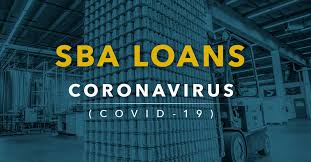
CARES Act Assistance for Small Businesses
Paycheck Protection Program – The CARES Act establishes the Paycheck Protection Program, a $350
billion loan program to help small & mid-sized businesses with cash flow during the COVID-19 crisis.
If the business maintains their payroll for 8 weeks, the portion of the loan used for covered payroll costs,
interest on mortgage obligations, rent, and utilities would be forgiven.
Who is eligible to receive the loans?
• Businesses with 500 or less employees;
• Businesses that meet current Small Business Administration (SBA) size standards;
• Self-employed individuals and “gig economy” workers;
• Certain nonprofits, including 501(c)(3) organizations and 501(c)(19) veteran organizations; and
• Tribal businesses with under 500 employees.
What is the size of the loans?
• The maximum loan size is 250% of the employer’s average monthly payroll, or $10 million
(whichever is less).
What can loans be used for?
• Payroll costs (salary, wages, and payment of cash tips up to annual rate of $100,000 per
employee);
• Continuation of health care benefits during periods of paid sick, medical, or family leave, and
insurance premiums;
• Employee salaries, commissions, or similar compensations;
• Payments of interest on mortgage obligations;
• Rent, including rent under lease agreement;
• Utilities; and
• Existing allowable uses under 7(a) program, which includes purchasing inventory, supplies, raw
materials, and working capital.
How does the loan forgiveness work?
• Borrowers are eligible for loan forgiveness equal to the amount they spend on payroll, interest on
mortgages, rent, and utilities during the 8-week period after the origination date of the loan.
• The amount forgiven will be reduced proportionally by any reduction in employees retained
compared to the prior year, and by any reduction in pay of employee beyond 25% of their prior
year compensation. To encourage employers to rehire any employees who have already been laid
off, borrowers that re-hire workers previously laid off will not be penalized for having a reduced
payroll at the beginning of the period.
Who makes and approves the loans?
• The loans will be 100% backed by the government, but the authority to make and approve loans
is delegated to local banks and credit unions.
• Financial institutions that are already approved 7(a) lenders would be automatically eligible to
participate. The bill also directs the Treasury Department to create a streamlined process for
becoming an approved lender so more financial institutions can participate.
• Without going through all of SBA’s channels, lenders can make determinations on a borrower’s
eligibility and creditworthiness. Instead of determining the ability for the businesses to repay,
lenders will simply determine whether a business was operational on February 15, 2020, and
whether it had employees for whom it paid salaries and payroll taxes, or a paid independent
contractor.
• SBA will provide lenders with a process fee for servicing the loan. The bill sets lender
compensation fees at 5% for loans of not more than $350,000; 3% percent for loans of more than
$350,000 and less than $2,000,000; and 1% for loans over $2,000,000.
What happens to the portion of loan that is not forgiven?
• The remaining balance will maintain a 100% guarantee & have a maturity of not more than 10
years.
• Loan payments are deferred at least six months.
• The maximum interest rate is 4%.
Can businesses receive this and an Economic Injury Disaster Loan?
• Limits borrowers from receiving Paycheck Protection Program (PPP) loan and an SBA
Economic Injury Disaster Loan (EIDL) for the same purpose. However, it allows a borrower
who has an EIDL loan unrelated to COVID-19 to apply for a PPP loan, with an option to
refinance that loan into the PPP loan.
Other Resources in CARES Act:
• Employee retention credit – In lieu of the Paycheck Protection Program, employers can opt to
receive a refundable payroll tax credit for 50% of wages paid by employers to employees during
the COVID-19 crisis. Available to employers with operations that were at least partially
suspended because of a shutdown order, or employers who had gross receipts decline at least
50% relative to the same quarter last year.
• Delay of payment of employer payroll taxes – Allows employers and self-employed
individuals to defer payment of the employer share of the Social Security tax they otherwise are
responsible for paying to the federal government with respect to their employees. Deferred tax
would be paid in the following two years.
• Emergency EIDL Grants – The bill expands eligibility for entities suffering economic harm
due to COVID-19 to access SBA’s Economic Injury Disaster Loans (EIDL), while also giving
SBA more flexibility to process and disperse small dollar loans. The bill would allow businesses
that apply for an EIDL expedited access to capital through an Emergency Grant—an advance of
$10,000 within three days to maintain payroll, provide paid sick leave, and to service other debt
obligations.
• Small Business Debt Relief – The bill requires SBA to pay all principal, interest, and fees on all
existing SBA loan products, including 7(a), Community Advantage, 504, and Microloan
programs, for six months to provide relief to small businesses negatively affected by COVID-19.
